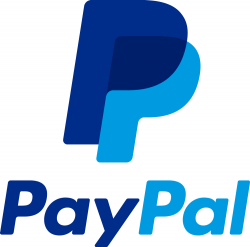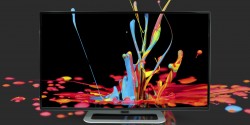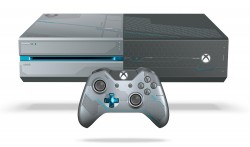Happy Chinese New Year! It’s the year of the Monkey, so those born 12, 24, 36 … hope you can spot the pattern … years ago should seriously consider wearing something red every single day to avoid bad luck. Me? I’ve stockpiled on red underwear during the holiday sales, so I’m all good!
No go on part one of the PC build guide – just too much going on this week in terms of news, which we’ll get to in a minute.
Maybe not even a minute, because here’s the news …
![]()
Trigger happy PayPal has another target, this time it’s VPN/SmartDNS providers. UnoTelly was the unfortunate first victim in PayPal’s potential purge of geo-dodging service providers, possibly due to pressure from Hollywood. Once again, PayPal disappoints in caving to almost no pressure at all, having previously banned file hosting providers, torrent search engines, or anything that rights-holders don’t like.
The worst thing about this ban is that it isn’t very clear at all that geo-dodging, while definitely against the user agreements of services like Netflix, is considered copyright infringement. In fact, it’s considered legal here in Australia (as specifically confirmed by our current prime minister). Plus, VPNs have all sorts of non geo-dodging uses, including enhanced security for when you’re using public Wi-Fi, so I’m not sure if PayPal’s actions can be defended if companies like UnoTelly do challenge it (which they probably won’t).
We’ll have to wait and see if this is just an isolated incidence, or part of a wider campaign to clamp-down on geo-dodging (which could extend to other payment providers, including credit card companies). It’s quite disconcerting to known that major corporations can make deals like this to bring entire industries to their knees, all the while bypassing the legal process that’s designed to protect all parties involved.
Speaking of bypassing the legal process, the MPAA has apparently reached an private agreement with the operators of Popcorn Time, and this week Hollywood’s copyright lobby took over the Popcorntime.io domain name. Technically, the MPAA did not bypass the legal process, as it had launched a lawsuit against the operators – a lawsuit that has now been settled, so this one is still better than PayPal’s unilateral bannings.
![]()
I expect a lot of the focus this year to be on 4K, with the technology all but ready to be mainstream in 2016. But while I like the fact that the admission price into the world of 4K is quite low these days, I do worry that people aren’t getting the best out of it. While the increased resolution should be somewhat noticeable even if you don’t have a mega-sized TV (think of it as down-scaling or anti-aliasing), it’s things like increased colour gamuts and HDR that should give the biggest visual punch for upgraders – and you probably won’t get that from a budget 4K TV.
Netflix also agrees that the biggest thing about 4K isn’t 4K, but HDR and improved colours, and the company is doing its bid to make the content available. Netflix predicts that 5% of its content will be HDR enabled by the end of this year (and 20% by 2019), and it’s already shooting its Original shows in HDR whenever possible.
The problem now though is that we do have a format war brewing between two different HDR standards – Dolby’s Dolby Vision and HDR 10. Hopefully, most TV manufacturers, like Netflix, will choose to support both. Ultra HD Blu-ray officially supports HDR 10, but also offers “possible” support for Dolby Vision which will depend on manufacturers.
In related HDR news, Samsung’s first Ultra HD player, the UBD-K8500, is already available to buy, a little bit earlier than expected. The player apparently does not support Dolby Vision, but I’m hoping something could come along via a firmware update to fix this. Meanwhile, despite being the major backers of Blu-ray, Sony is adopting a wait and see attitude towards Ultra HD Blu-ray, preferring to not release its UHD BD player until 2017 (at the latest). Sony cites strong competition from 4K streaming, and the lack of slated Ultra HD releases in 2016, as reasons for the delay, worries that apparently aren’t on Samsung, Panasonic and Philips’s radars.
![]()
Just how far behind the PS4 is the Xbox One? That’s the question that everyone is asking, but Microsoft, the only ones that have the actual data to answer the question, is remaining pretty quiet on the issue. Except they’re actually not the only ones that can answer the question – apparently, EA can do too, and they have. EA’s boss has accidentally leaked the Xbox One sales data, and it shows Sony’s PS4 is outselling the Xbox One by almost a 2-to-1 margin.
Despite this, Microsoft says they’re still happy with the sales results so far because it’s still better than the Xbox 360 at the same point in time. However, the Xbox 360 became stronger after the slim update, and then subsequently became the best selling home console for a long while – for the Xbox One to be as successful, it too needs something like this to happen. But I doubt it will happen though – the PS4 is just too strong.
——
That’s it for the week. Hope you had fun reading. See you next Chinese year!




